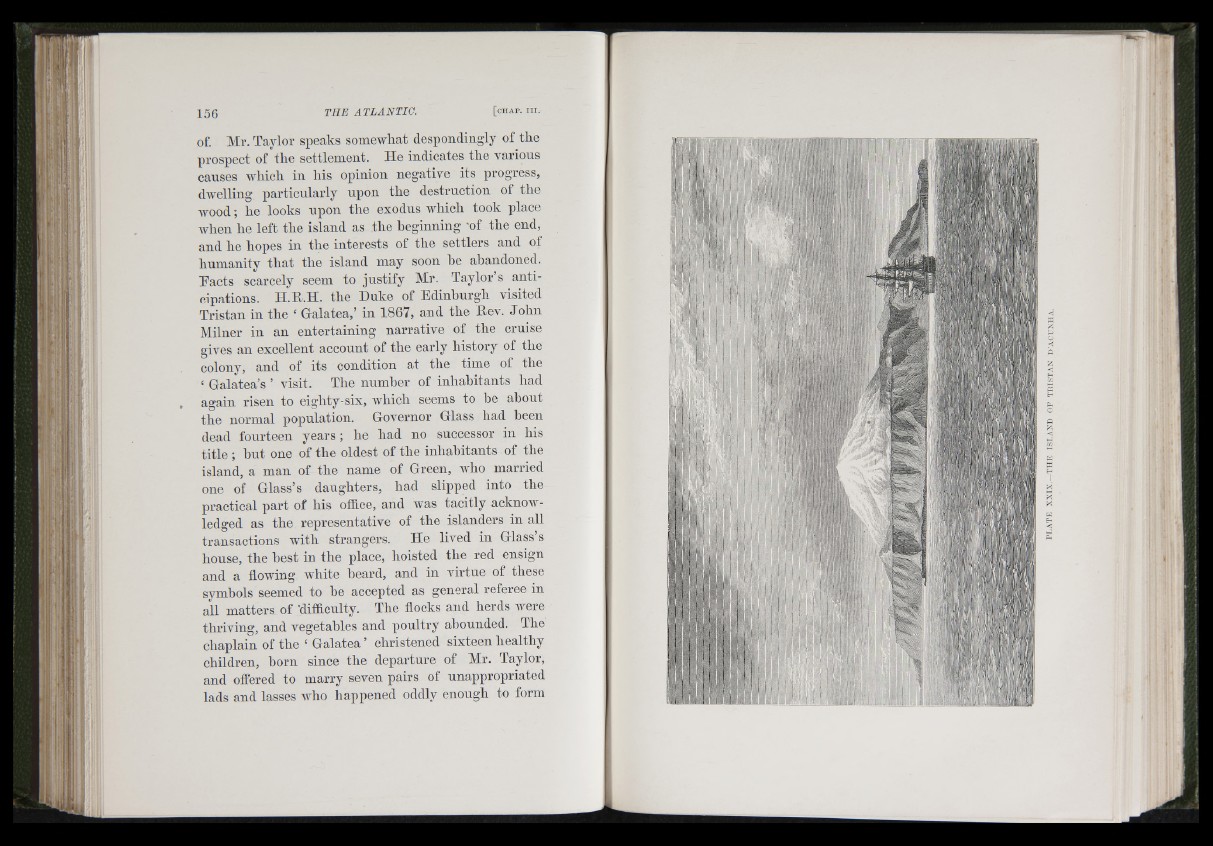
L iiis
i : it
f-i i
mid
of. Mr. Taylor speaks somewhat despondingly of the
prospect of the settlement. He indicates the various
causes which in his opinion negative its progress,
dwelling particularly upon the destruction of the
AVOod; he looks upon the exodus Avhich took place
Avhen he left the island as the heginning 'of the end,
and he hopes in the interests of the settlers and ol
humanity th a t the island may soon he abandoned.
Eacts scarcely seem to justify Mr. Taylor’s an ticipations.
H.B.H. the Duke of Edinburgh visited
Tristan in the ‘ Galatea,’ in 1867, and the Bev. John
Milner in an entertaining narrative of the cruise
giA'es an excellent account of the early history of the
colony, and of its condition at the time of the
‘ Galatea’s ’ visit. The number of inliahitants had
again risen to eighty-six, Avhich seems to he about
the normal population. Governor Glass had been
dead fourteen ye ars; he had no successor in his
title ; hut one of the oldest of the inhabitants of the
island, a man of the name of Green, Avho married
one of Glass’s daughters, had slipped into the
practical pa rt of his office, and was tacitly acknowledged
as the representative of the islanders in all
transactions Avith strangers. He lived in Glass’s
house, the best in the place, hoisted the red ensign
and a floAving Avhite heard, and in virtue of these
symbols seemed to he accepted as general referee in
all matters of •difficulty. The flocks and herds Avere
thriving, and vegetables and poultry abounded. The
chaplain of the ‘ Galatea ’ christened sixteen healthy
children, born since the departure of Mr. Taylor,
and offered to marry seven pairs of unappropriated
lads and lasses Avho happened oddly enough to form
gO
y EIi!
c-'